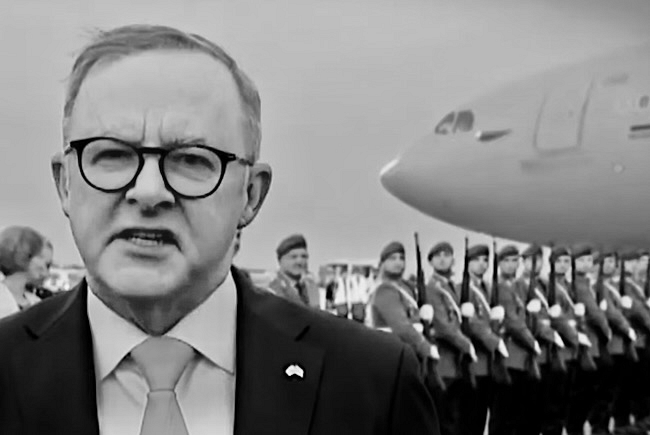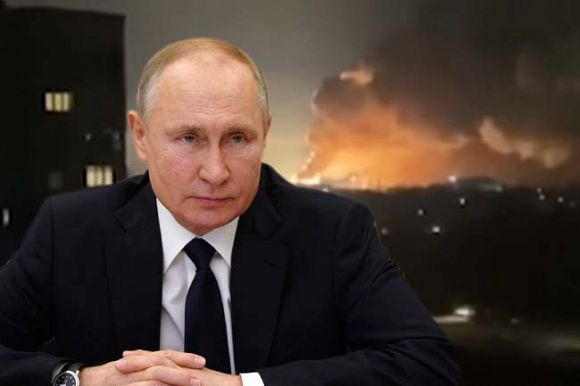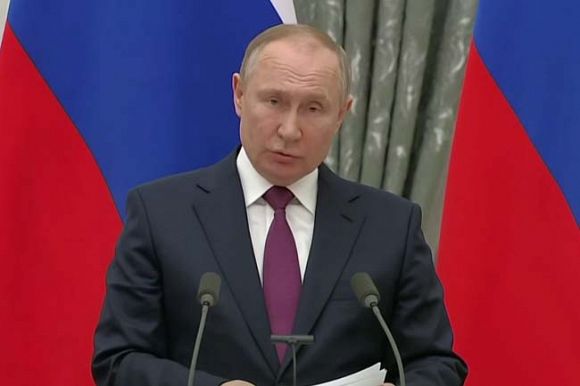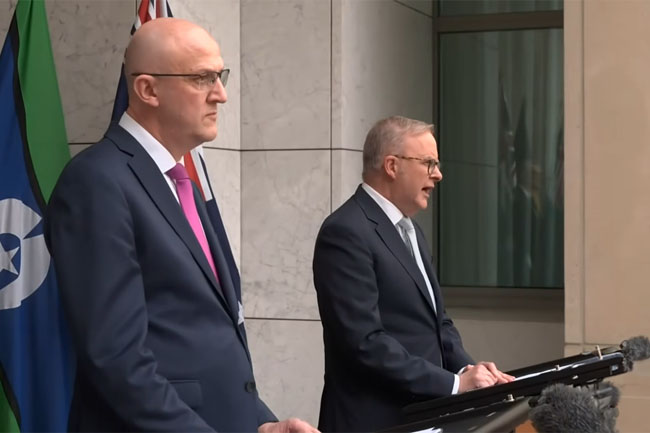The North Atlantic Treaty Organization has undermined its mission to foster stability, becoming a vessel of U.S. power. Where NATO goes, war is most likely — Australia should take note, writes Dr Binoy Kampmark.
SINCE THE end of the Cold War, the North Atlantic Treaty Organization (NATO) has distinctly strayed from its original purpose. It has become, almost shamelessly, the vessel and handmaiden of U.S. power, while its burgeoning expansion eastwards has done wonders to upend the applecart of stability.
From that upending, the Alliance started bungling. It engaged, without the authorisation of the United Nations Security Council, in a 78-day bombing campaign of Yugoslavia – at least what was left of it – ostensibly to protect the lives of Kosovar Albanians. Far from dampening the tinderbox, the Kosovo affair continues to be an explosion in the making.
Members of the Alliance also expended material, money and personnel in Afghanistan over the course of two decades, propping up a deeply unpopular, corrupt regime in Kabul while failing to stifle the Taliban. As with previous imperial projects, the venture proved to be a catastrophic failure.
In 2011, NATO was again found wanting in its attack on the regime of Libyan leader Muammar Gaddafi. While it was intended to be an exemplar of the Responsibility to Protect doctrine, the intervention served to eventually topple the doomed Colonel Gaddafi, precipitating the de-facto partitioning of Libya and endangering the very civilians the mission was meant to protect.
A continent was thereby destabilised. The true beneficiaries proved to be the tapestry of warring rebel groups characterised by sectarian impulses and a voracious appetite for human rights abuses and war crimes.
The Ukraine War has been another crude lesson in the failings of the NATO project. The constant teasing and wooing of Kyiv as a potential future member never sat well with Moscow, and while much can be made of the Russian invasion, no realistic assessment of the war’s origins can excise NATO from playing a deep, compromised role.
The Alliance is also proving dissonant among its members. Not all are exactly jumping at the chance of admitting Ukraine.
German diplomats have revealed they will block any current moves to join the Alliance. Even that old provoking power, the United States, is not entirely sure whether doors should be open to Kyiv.
On Cable News Network (CNN), President Joe Biden expressed the view that he did not “think it’s ready for membership of NATO”. To qualify, Ukraine would have to meet a number of “qualifications” from “democratisation to a whole range of other issues”.
While hardly proving alert during the interview – at one point, confusing Ukraine with Russia – Biden did draw the logical conclusion that bringing Kyiv into an alliance of obligatory collective defence during current hostilities would automatically put NATO at war with Moscow.
With such a spotty, blood-speckled record marked by stumbles and bungles, any suggestions of further engagement by the Alliance in other areas of the globe should be treated with abundant wariness.
The latest talk of further Asian engagement should also be greeted with a sense of dread.
According to a recent July statement:
'The Indo-Pacific is important for the Alliance, given that developments in that region can directly affect Euro-Atlantic security. Moreover, NATO and its partners in the region share a common goal of working together to strengthen the rules-based international order.'
With these views, conflict lurks.
The form of that engagement is being suggested by such ideas as opening a liaison office in Japan, intended as the first outpost in Asia. It also promises to feature in the NATO Summit to take place in Vilnius on 11 and 12 July, which will again repeat the attendance format of the Madrid Summit held in 2022.
That new format featuring the presence of Australia, Japan, New Zealand and the Republic of Korea – or the AP4 – should have induced much head-scratching. But the Australian Strategic Policy Institute (ASPI), Washington’s beady eyes in Canberra, celebrated this 'shift to taking a truly global approach to strategic competition'.
NATO Secretary General Jens Stoltenberg is also much in favour of such competition, warning member states of Beijing’s ambitions."We should not make the same mistake with China and other authoritarian regimes", he suggested, alluding to a dangerous and flawed comparison between Ukraine and Taiwan.
Cautioned Stoltenberg:
“What is happening in Europe today could happen in Asia tomorrow.”
One of the prominent headscratchers at this erroneous reasoning is French President Emmanuel Macron. Taking issue with setting up the Japan liaison office, Macron has expressed opposition to such expansion by an alliance which, at least in terms of treaty obligations, has a strict geographical limit.
In the words of an Elysée Palace official:
“As far as the office is concerned, the Japanese authorities themselves have told us that they are not extremely attached to it.”
With a headmaster’s tone, the official went on to give journalists an elementary lesson:
“NATO means North Atlantic Treaty Organization.”
The centrality of Articles 5 and 6 of the Alliance was “geographic” in nature.
In 2021, Macron made it clear that NATO’s increasingly obsessed approach with China as a dangerous belligerent entailed a confusion of goals:
Said Macron:
“NATO is a military organisation; the issue of our relationship with China isn’t just a military issue. NATO is an organisation that concerns the North Atlantic, China has little to do with the North Atlantic.”
Such views have also pleased former Australian Prime Minister Paul Keating, whose waspish ire has also been trained on the NATO Secretary General.
In his latest statement, Keating condemned Stoltenberg as 'the supreme fool' of 'the international stage'.
Declared Keating:
'Stoltenberg, by instinct and by policy, is simply an accident on its way to happen.'
In thinking that "China should be superintended by the West and strategically circumscribed”, the NATO official had apparently overlooked an obvious point.
China, Keating said,
“... represents 20 per cent of humanity and now possesses the largest economy in the world… and has no record for attacking other states, unlike the United States, whose bidding Stoltenberg is happy to do”.
The record of this ceramic-breaking bloc speaks for itself. In its post-Cold War visage, the Alliance has undermined its own mission to foster stability, becoming Washington’s axe, spear and spade. Where NATO goes, war is most likely. Countries of the Indo-Pacific, take note.
Dr Binoy Kampmark was a Cambridge Scholar and is a lecturer at RMIT University. You can follow Dr Kampmark on Twitter @BKampmark.
 This work is licensed under a Creative Commons Attribution-NonCommercial-NoDerivs 3.0 Australia License
This work is licensed under a Creative Commons Attribution-NonCommercial-NoDerivs 3.0 Australia License
Support independent journalism Subscribe to IA.















